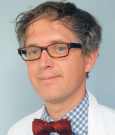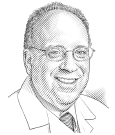In Europe, the field of geriatric oncology has a long history of development, and its organization and implementation continue to improve every day. This would not have happened without the strong commitment of national authorities to health policies, a critical success factor.
Four Missions
In France, for example, this commitment has been repeatedly reflected in three successive Cancer Plans of the Institut National du Cancer (INCa). These plans have allowed the development and funding of 28 coordination units in geriatric oncology (Unités de Coordination en Onco Gériatrie, or UCOG) to cover France, each one co-chaired by an oncologist and a geriatrician to carry out four shared missions:
- To disseminate the know-how of interaction between oncology and geriatrics teams
- To make this expertise accessible to any elderly cancer patient
- To stimulate specific clinical and translational research
- To improve both information for the regular population and education of health-care providers
So far, this territorial grid has been very successful, culminating in the joint effort to build an intergroup for clinical research dedicated to geriatric oncology. This intergroup encompasses the 28 UCOG units and the French cooperative group GERICO, which was created 15 years ago under the auspices of UNICANCER, a French network of comprehensive cancer centers similar to the National Comprehensive Cancer Network (NCCN).
The newly launched GERICO/UCOG Intergroup, as it was dubbed by INCa, has been renamed DIALOG. Its first primary task is to move the rate of elderly cancer patients enrolled on clinical trials from 1% (already improved from a previous rate of 0.2%, after an important effort conducted between 2005 and 2012) to 5%, getting closer to the 15% target rate for the overall adult population (which now has an enrollment rate of only 7.5%). To this end, a share of the budget in national grant applications has been reserved for specific programs addressing the elderly cancer population.
Cross-Border Collaborations
Of course, the challenges remain high, but the DIALOG undertaking will benefit from cross-border collaborations. This will increase chances to identify the most relevant specific research questions and encourage the oncology community to “get out of its cave” and see other perspectives in the current world of clinical research.
This should facilitate revisiting standard cancer research endpoints, conferring priority to areas considered secondary in younger adults (eg, quality of life, independence), questioning the impact of cancer treatments on the aging process, breaking or disrupting the rules of the therapeutic decision process used for younger patients as a simplistic extrapolation for the elderly, and reaching out to patients with a more holistic approach, among other potential advances.
One such example of this evolution is the multicenter phase III ASTER 70s trial investigating the role of adjuvant chemotherapy for women over age 70 with luminal B early-stage breast cancer. The trial is being led by GERICO in France, with active participation by centers in Belgium. That sort of international cooperation in geriatric oncology is also illustrated by the European Organisation for Research and Treatment of Cancer (EORTC) with its Cancer in the Elderly Task Force. The Task Force is a key actor in lobbying at the level of European regulatory mechanisms to stimulate collaborative research efforts.
Role of Education
None of these activities could happen without physician education: In our aging society, education is the most important cornerstone of both building a better future and achieving tangible change today. This entails teaching (and learning to teach) our closest colleagues from the worlds of oncology and geriatrics, developing and disseminating specific high-standard guidelines that advocate fine-tuned strategies in elderly cancer patients, and advancing geriatric oncology training in universities.
All of these goals are part of the current strategy of the International Society of Geriatric Oncology (SIOG) that I have the honor to chair. History shows that important trends occurred when there was a stimulating environment conducive to learning, enabling genuine revolutions, as during the Italian Renaissance, when “cenacoli” were well-intentioned and welcoming communities where elders and youths reciprocally nurtured, inspired, and educated each other. These communities made education the cement between generations, disseminating knowledge and eventually impacting on society and practice.
This concept has paved the road to the development of the 4-day SIOG Treviso Advanced Post Graduate Course, held at the Study Centre Achille and Linda Lorenzon in Treviso, in the vicinity of Venice (Italy), with the support of the Università Cattolica del Sacro Cuore and the European School of Oncology, and under the auspices of ASCO.
Thanks to Silvio Monfardini, MD, a most learned oncologist, Past President of SIOG, and 2015 ASCO B.J. Kennedy Award winner, and geriatrician Giuseppe Colloca, MD, SIOG has embraced the challenge of having an audience from the two worlds of oncology and geriatrics—20 to 30 young oncologists and geriatricians coming from all around the world annually. For the 2014 and 2015 program, participants traveled from Italy, Spain, France, Poland, the United States, Costa Rica, Australia, and Brazil.
July 2016 will see the third edition of the course, which is hopefully becoming a new cradle for geriatric oncology, resurrecting a longstanding Italian tradition. While the format may slightly change, the main goal will remain to introduce the audience to the general principles of both geriatrics and clinical oncology, under the supervision of an international faculty aiming to train students to understand how they can work together, in the hope that they will become the bridge between the oncology and geriatrics teams in their own institutions.
We live in a fast-evolving and aging world. Geriatric oncology is an area where young generations of health professionals need to be provocative and imaginative in order to step up the challenges posed by the age transition in our society. Join us for the 2016 edition of the Treviso Advanced Post Graduate Course. For more information, visit www.siog.org. ■
Disclosure: Dr. Brain is President of the International Society of Geriatric Oncology (SIOG).
Dr. Brain is a medical oncologist at Institut Curie/Hôpital René Huguenin in Saint-Cloud, France, and President of the International Society of Geriatric Oncology (SIOG).
GUEST EDITOR
Dr. Lichtman is an Attending Physician at Memorial Sloan Kettering Cancer Center, Commack, New York, and Professor of Medicine, Weill Cornell Medical College, New York. He is also President Elect of the International Society of Geriatric Oncology (www.siog.org).



